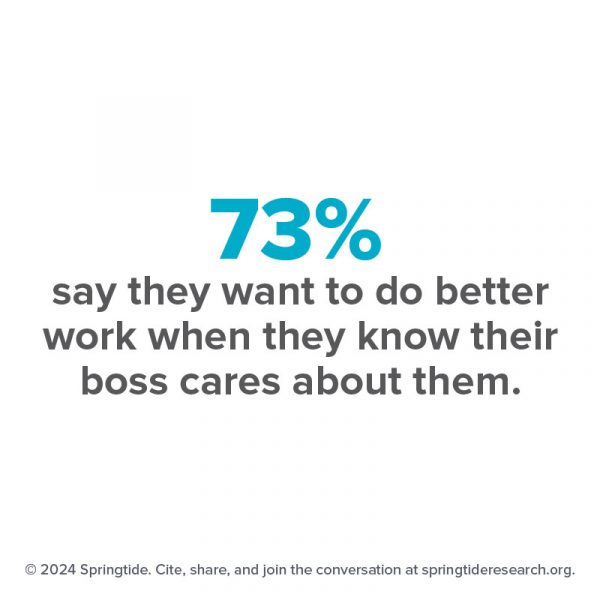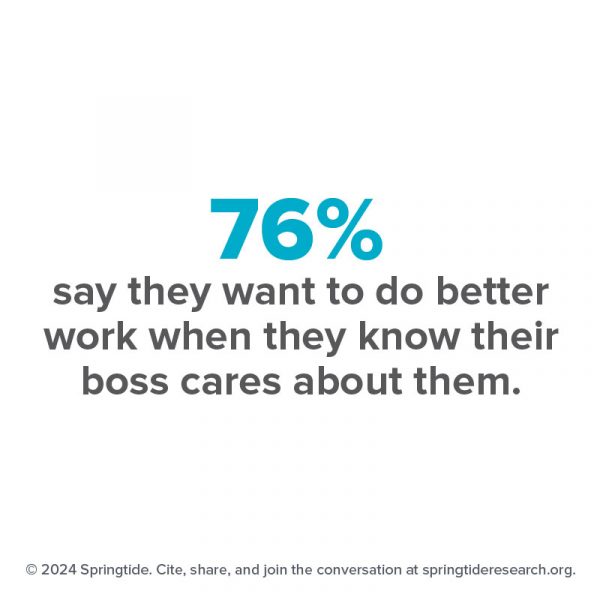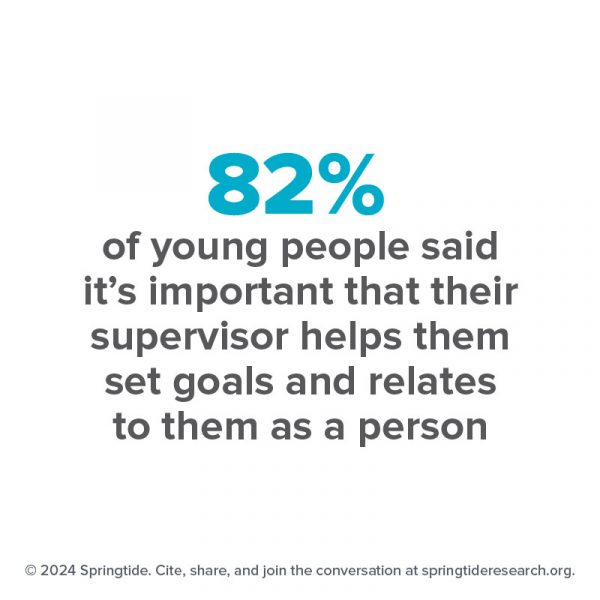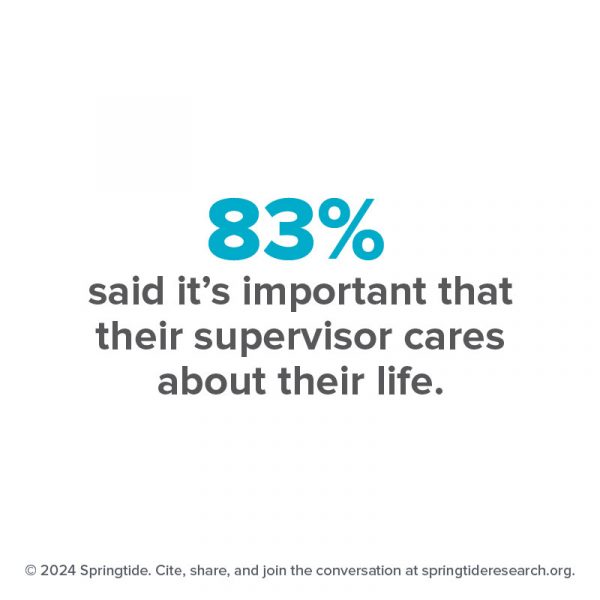
For Gen Z, Relational Workplaces Matter
In Meaning Making: 8 Values That Drive America’s Newest Generations and Work/Life: Helping Gen Z Flourish and Find Balance, our data show that Gen Z prioritizes meaningful relationships in the workplace—interpersonally rich ones that help provide greater purpose to the work and that support personal and professional growth. For many young people, they thrive and flourish at work because of these relationships.
Why?
Our data show that when young people sense they truly belong— when they’re accepted for who they are and their connections with others are authentic, it makes work more relational by layering a deeper sense of meaning onto the work.
Here’s what young people told us:




Our findings continue to align with additional research that claims Gen Zers value a relational workplace. Consulting firm Deloitte has been studying workplace trends among Millennials and Gen Z for several years, but some of their most recent work in 2023 focused in on Gen Zers’ relationships with their bosses. Surveying 2,000 Gen Z employees and 600 bosses spanning all generations, data showed that both groups valued workplace flexibility, appreciation for positive contributions, and psychologically safe spaces.
Yet, the data also pinpointed distinct differences in:
Empathy: Gen Zers highly valued empathy as a trait in their bosses, but bosses ranked demonstrating empathy much lower. Data showed Gen Zers viewed empathy as a prerequisite for increased engagement and taking on more responsibility, and those who felt cared for at work were 3.3 times more likely to look forward to coming to work and were less likely to plan to leave their role.
The role of mental health in work: Gen Zers feel that their views differ the most from their bosses in this area. Data showed that less than half of employees said their boss helps them maintain a healthy workload. Twenty-eight percent said say they struggle with their mental health because of their boss; 31 percent of those who identified as racially or ethnically diverse said the same. A quarter of bosses said Gen Z’s expectations regarding mental health conflict with existing workplace norms. Interview data suggested that increased touchpoints and more “holistic interest in Gen Zers as human beings” has the potential to close the noted perception gaps around mental health.
Job readiness and training: Both employees and bosses agreed that training and job readiness are often lacking and they want to make changes, but the disconnect came from bosses’ willingness to figure out solutions given the restrictions of remote and hybrid environments. Data suggests that working collaboratively to find solutions is necessary for a variety of reasons but especially because poor performance can lead to greater turnover, which makes it more difficult for meaningful relationships to be established.



